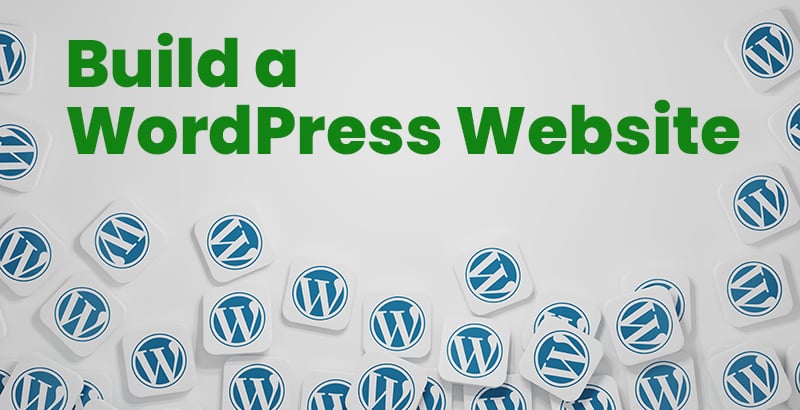- Sep 10, 2018
 0
0- by A2 Marketing Team
As your website’s needs and traffic levels grow, you’ll want to move from shared hosting to a plan that offers more resources and features. You may even be looking for a plan that provides greater control over the hosting environment. In this scenario, Virtual Private Server (VPS) hosting is likely your best bet.
In a nutshell, VPS hosting is a type of plan that gives you your own private (virtual) server. This means you don’t share resources with other users. It’s also highly scalable, since you can change your resource allocation at any time. VPS hosting works much like having your own dedicated server, but it requires less technical expertise and is significantly cheaper.
In this guide, we’ll explain what VPS hosting is and how it works. Then we’ll explore its pros and cons, and discuss who should opt for this type of hosting plan. Let’s get started!
What Is VPS Anyway?

If you have a shared hosting plan, your website is housed on a physical server alongside many other sites. This means that the resources you’re using are shared. So if one site receives a lot of unexpected traffic, for example, your own site’s loading times can suffer.
With a Virtual Private Server (VPS) plan, you’re still technically sharing a physical server with other users. However, your site is partitioned off, so that you aren’t sharing resources with anyone else. When you choose VPS hosting, what you’re getting is your own virtual server, with full administrative access.
A VPS server comes with its own disc space, operating system, CPU, RAM, and bandwidth. This gives you more control over the hosting environment. Typically, you’ll also be starting with more resources than you would on a shared hosting plan. This can make VPS hosting a tempting option for many users.
How VPS Hosting Differs From Other Plans
Now that we’ve covered the basics, let’s get more in-depth about what sets this type of hosting apart. For VPS hosting to work, a single server is divided into several virtual compartments. Each compartment has its server software, which makes it capable of functioning independently.
As we’ve mentioned, VPS hosting is different from a shared setup, which is the most common form of web hosting. With a shared hosting plan, you split critical resources with other website owners. Plus, you don’t have much control over the configuration of the server you’re using.
Shared hosting is a solid option if you are starting a new site and you don’t have a lot of traffic yet. However, the primary downside of a shared plan is that traffic spikes on other websites that are sharing your server can affect your site’s performance. With VPS hosting, you don’t need to worry about that situation.
VPS hosting is also different from dedicated hosting, which is the next step up. A dedicated plan provides you with your own physical server, which gives you even more power and control than a VPS setup. Dedicated hosting offers total control over your resources and server configuration. However, it’s more expensive than VPS hosting, and can be overkill for all but the largest and busiest sites.
All of this means that VPS hosting occupies a middle ground between shared and dedicated hosting. It’s also the logical step up from a shared plan, if you’re considering a change.
The Pros and Cons of VPS Hosting
If you’re thinking about upgrading to VPS hosting, it helps to fully understand its advantages and disadvantages. While we’ve hinted at a few of these already, let’s spell them out clearly.
With VPS hosting, one of the biggest pros is the full access you get to your server. You can configure its settings, and perform customizations to better match your needs. This is only possible because nothing you do impacts the other sites that are housed on the same physical server.
Since you don’t share resources with other websites, your visitors will also get to enjoy faster loading times when browsing your site. This is crucial for building an audience. VPS hosting also offers a higher level of security than shared hosting, because you don’t have to worry as much about hacks and malware on nearby sites affecting yours. Finally, it’s also very easy to scale up how many resources you’re using, to match your site’s growth over time.
Even with all these advantages, VSP hosting does have a few potential cons. It’s generally affordable, but is more expensive than a shared hosting plan. So you’ll need to make sure there’s room in your budget. You’ll also need some technical knowledge to manage your virtual server properly. Fortunately, you can get a managed VPS plan, which means your provider will do most of the technical work for you.
There’s also the possibility of poor resource allocation by your hosting service. This happens when a hosting company oversells its servers, hoping that users won’t have enough traffic to notice. When your traffic peaks on these plans, the performance of your site is likely to be reduced. For that reason, it’s crucial to choose a quality hosting provider.
How to Decide Whether VPS Hosting Is Right for You
With all of this in mind, how should you decide whether or not to opt for a VPS plan? VPS hosting is useful in a lot of different scenarios. In particular, it’s perfect for websites that have grown beyond the constraints of shared hosting.
In most cases, increased traffic volume is the primary reason for this type of upgrade. If your site is starting to see a consistently higher number of daily visitors, you’re likely to need a more robust hosting plan. Continuing to use a shared plan could result in slower loading times and otherwise poor performance.
Other reasons to sign up for a VPS hosting plan include:
- You have two or more sites, and you need additional resources to handle them.
- You want to improve your site’s privacy and security.
- You’re running a business or e-commerce site, and need to meet specific requirements
- You’re looking to get more control over how your hosting and server are customized, or you are developing sites for clients.
If any of these sound like you, the time may be right to get a VPS plan. Fortunately, here at A2 Hosting we offer VPS hosting that’s fast, reliable, and secure. You can even choose between an unmanaged and managed VPS plan, to better meet your needs. These plans should keep your site running smoothly for a long time to come.
VPS Server Conclusion
Do you want more power and flexibility than what a shared hosting plan can provide? Then you might want to consider upgrading to VPS hosting. This type of plan offers you resources and tools that are not shared by other users. So you don’t need to worry about anyone else’s site playing havoc with your own.
With a VPS plan, you get your own virtually-partitioned server. You can customize the way it’s set up, as well as how many resources it includes. If you’re looking for something more powerful than a basic shared plan, but you don’t want to break your budget, VPS hosting is the natural way to upgrade your site.
Image credit: Pixabay.












